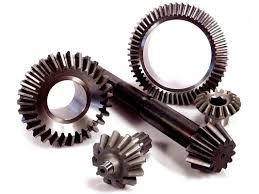Bevel gears, which are connected to the bevel wheels, which are not the straight ones but the slanting one. This kind of gears can be best defined as the conic-shaped gear that transmits the power between two bisect axels. This device is not a single one; therefore, the bevel gears manufacturer combines the machine tools and prepares the device in different methods.
The Basic Structure
The main feature of this device is the conic shape and the teeth on the surface to face the uneven obstacles. The teeth are made less than 90 degrees in angle making them a bit slanting on the outer surface. The teeth are supposed to be parallel to the outwards direction along with the axis. The inward points of this device are usually more than 90 degrees angle, and it is called internal bevel gear.
The Types of the Device
• Straight one
• Spiral One
Due to the conveniences of the spiral ones, nowadays the straight people have become rear because the teeth of this device cannot be taken out and polished after a few days of use. Therefore, due to the lack of maintenance, they don’t last for use and seems like they are meant for short time use. On the other hand, the teeth of the spiral ones easily removable and thus they can also be polished and repaired whenever it seems necessary. In this way, they can be used for a long time and look economic to the customers.
Manufacturing Methods
It is known that the production of any product depends upon the materials used in the making of the same. In this case, also the quality of the material and the shapes and size of the device based on the designs are quite variable matter. Considering all these- material, shapes, sizes and designs there are mainly two methods in making of this device-
Gleason Method
Klingelnberg Method
The difference between these two approaches lies on the pitch of the teeth. Considering convenience and popularity, the Gleanson Method is mostly used.
Summary
Bevel gears of the machines are formed in different methods and terms based on their convenience of usage and popularities to the customers.




No comments:
Post a Comment